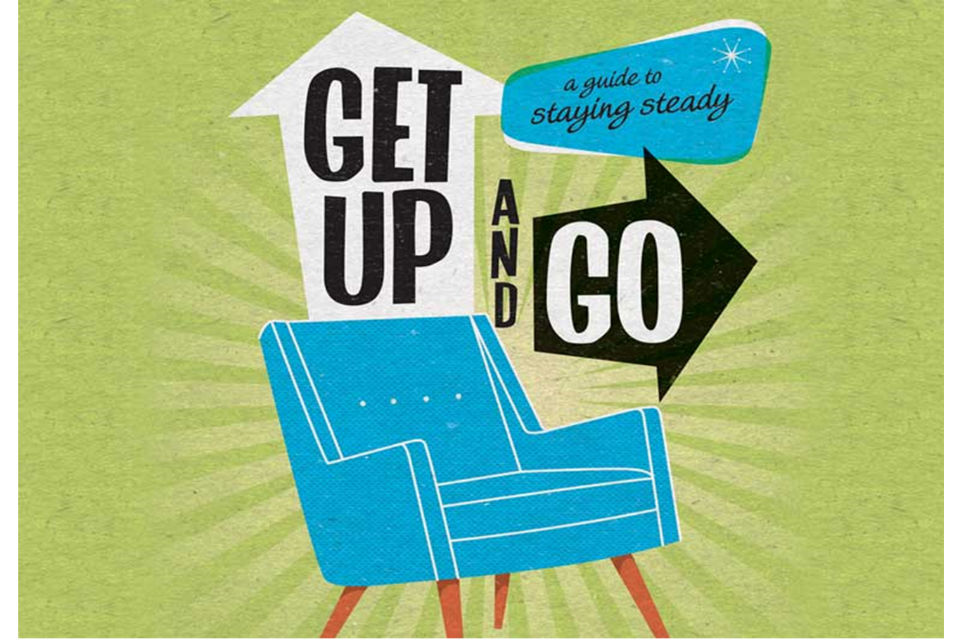Dementia Fall Risk Fundamentals Explained
Dementia Fall Risk Fundamentals Explained
Blog Article
Unknown Facts About Dementia Fall Risk
Table of ContentsDementia Fall Risk for BeginnersFacts About Dementia Fall Risk UncoveredDementia Fall Risk for DummiesSome Known Questions About Dementia Fall Risk.Some Known Questions About Dementia Fall Risk.
You could be nervous because you've had a fall before or because you've observed you're beginning to really feel unstable on your feet. You could have observed modifications to your wellness, or just feel like you're slowing down a little. Whatever the reason, it isn't uncommon to end up being mindful and shed confidence, and this can quit you doing the things you made use of to do and make you feel extra separated.If you've had a loss or you have actually begun to really feel unsteady, tell your medical professional also if you really feel great otherwise. Your medical professional can inspect your equilibrium and the method you stroll to see if enhancements can be made. They may have the ability to refer you for a drops risk assessment or to the drops avoidance solution.
This details can be acquired through interviews with the person, their caretakers, and an evaluation of their medical documents. Begin by asking the specific regarding their history of drops, including the frequency and circumstances of any kind of current falls. Dementia Fall Risk. Inquire about any kind of flexibility troubles they may experience, such as unstable or problem walking
Conduct a complete evaluation of the person's medicines, paying particular focus to those understood to enhance the risk of falls, such as sedatives or drugs that reduced blood stress. Determine if they are taking several drugs or if there have been current modifications in their medication routine. Review the individual's home atmosphere for prospective threats that can boost the danger of drops, such as poor lighting, loose carpets, or absence of grab bars in the bathroom.
The Best Guide To Dementia Fall Risk
Guide the individual via the loss risk evaluation kind, discussing each question and taping their responses accurately. Make sure that the private comprehends the purpose of the assessment and really feels comfy providing honest responses. Calculate the total threat score based upon the responses provided in the assessment kind. Figure out the person's threat category (low, medium, or high) based on the complete score and the visibility of automatic risky condition aspects.
Routinely keep an eye on the individual's development and reassess their threat of drops as required. Give ongoing education and learning and assistance to promote safety and security and reduce the danger of falls in their everyday living tasks.
Several researches have revealed that physical therapy can aid to reduce the danger of falling in adults ages 65 and older. In a brand-new research (that checked out drops danger in women ages 80 and older), scientists calculated the financial impact of selecting physical treatment to avoid important source falls, and they located that doing so saves $2,144, consisting of all the concealed expenses of your time, pain, missed life occasions, and the bucks spent for services.
The 9-Second Trick For Dementia Fall Risk
Checking your heart price and blood stress measurements at rest and while you transform placements (from resting or existing to standing). An easy test of your reasoning (cognitive) abilities. Analyzing your equilibrium, stamina, and walking capability. An easy vision examination. Evaluating your feet and footwear. A home security analysis. Based upon the examination results, your physical therapist will certainly make a strategy that is tailored to your details requirements.
Older adults that have problem walking and talking at the very same time go to a higher risk of falling. Dementia Fall Risk. To help boost your safety and security during day-to-day activities, your physical therapist might develop a training program that will certainly test you to preserve standing and walking while you do an additional job. Instances include walking or standing while counting in reverse, having a discussion, or bring a bag of grocery i thought about this stores
Set goals for raising their physical task. Work out a lot more to boost their stamina and balance. These programs usually are led by volunteer instructors.
Rumored Buzz on Dementia Fall Risk

Measles, or rubeola, is an extremely contagious, severe viral infectious disease triggered by the measles infection. Some people assume of measles as just a rash and fever that improves in a few days; nevertheless, measles can trigger major health problems, particularly in kids younger than 5-years-old. The ideal protection against measles is the measles, mumps, and rubella (MMR) injection.
Autumns are an usual cause of injury among older adults.
What Does Dementia Fall Risk Mean?

She has a medical background of seizure condition and hypertension. She is receiving an IV mixture and taking Gabapentin and Lasix. She has no history of falls, her stride is consistent, and she nullifies with no problems. The previous nurse states that additional resources she asks for help to the restroom when she requires to go.
Instances of typical fall interventions/measures consist of: Making sure a client's vital items are available. Putting the person's bed rails up with the alarm on. Aiding an individual while they're getting up from bed. Past understanding just how to use the Johns Hopkins Loss Risk Evaluation Tool, it is essential that facilities incorporate its usage right into an extra detailed fall avoidance strategy.
Report this page